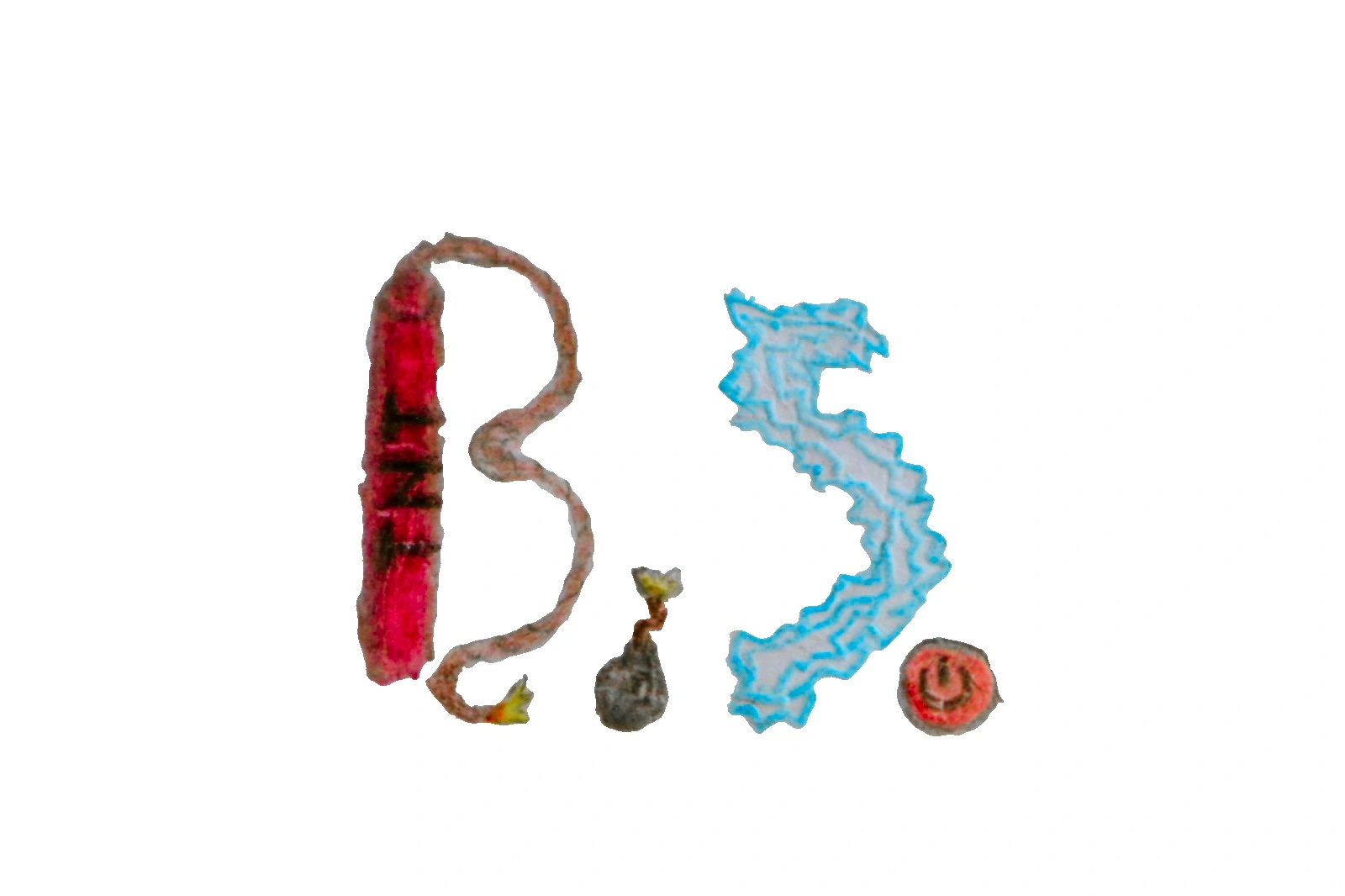- cross-posted to:
- [email protected]
- cross-posted to:
- [email protected]
Graph via Data is Beautiful on Reddit
Did not vote includes a significant number of disenfranchised people who were denied the ability to vote through having the right to vote taken from them, voting suppression barriers such as lines that were 8+ hours long, removal from voter registries, bullshit ID requirements, and other malicious actions.
Democracy!
I remember when I tried to vote from abroad while living in Fiji and my mail ballot arrived after the election 😂
And the same people claiming to be victims of voter fraud are the ones perpetrating the election fraud.
Before the 2000 presidential election, Florida’s legislature ordered the removal of deceased registrants, and citizens with felony convictions from rolls – Florida imposes a lifetime voting ban on ex-felons. But it was later reported that at least 1,100 legitimate voters were mistakenly removed from the rolls, according to The New York Times, while some reports project thousands more legitimate voters than that number were prevented from casting a ballot. It is the 2000 election in which President George W. Bush won by a 537-vote margin in Florida.
The actual stolen election.
People don’t understand that high numbers of people not voting is a symptom of a problem, not a problem itself.
It’s such a good metric to have and unless you’re a fan of authoritarian governments then I don’t see why you would want mandatory voting. “Everything is fine in our country. Look at all of this engagement in our elections that we forced.” That’s what you sound like if you full on back mandatory voting.
We reallyyyy need ranked choice voting
deleted by creator
You’re right! I, too, would love if that 40% actually voted, AND we need ranked choice voting.
Consider disenfranchised voters may be more likely to vote if they can vote for a candidate they actually like without it being a waste.
TIL 21st century has actually improved participation in comparation with late 20th century
deleted by creator
They didn’t. Hillary didn’t run a good enough campaign.
Hey there, Mr. Glass Houseman.
Votes don’t magically give someone the power to rule you. The only thing that rules you is what you are willing or not willing to sacrifice. After you voted against Trump, and your team lost, did you put your body upon the gears and upon the wheels, did you stop the machine from working?
Or did you throw up your hands, donate a pittance to the party that lost? Did you wait patiently for four years for another chance, all the while being a well-oiled cog in the Orphan Crushing Machine with Trump now at the lead? If the people who didn’t vote caused Trump to be elected, then it must also be true that everyone who continued to cooperate with the government after January 20 are complicit in everything that Trump did while in office. Do you feel shame for all the fucked up shit you enabled?
What a childish take.
deleted by creator
deleted by creator
wait wth are you even saying… if people who didn’t vote helped TFG to win, then people who did vote against him were complicit in what he did? wtf kind of logic is that?
Clinton/Gore was the first election I was eligible to vote but I was not yet responsible enough to register and actually figure out voting. I never voted until W’s second term, I disliked him enough to finally vote and have not missed an election since.
Same
I regret it but what can you do. We were young and dumb.
I’m not from the US and don’t know much about your politics, please explain to me how the party with less votes can win.
I’m not from the US, either. But from what i understand, the issues comes from the US having a “first past the post” voting system on a state level. The President is not elected by the percentage of votes, but each of the 50 states gets assigned a number of electors, based on their population. When a party/candidate has won the majority of votes within a state, they will receive all the electoral votes of that state.
Here’s a simplified example of how that works: Let’s assume 3 states with an equal ammount of inhabitants (let pop=1 million) and an equal ammount of electoral votes (let el=10)
State 1 has:
600.000 votes for candidate A (60%)
400.000 votes for candidate B (40%)State 2 has:
200.000 votes for candidate A (20%)
800.000 votes for candidate B (80%)State 3 has:
510.000 votes for candidate A (51%)
490.000 votes for candidate B (49%)candidate A has received a total of 1.310.000 votes (~44%)
candidate B has received a total of 1.690.000 votes (~56%)
candidate B has won the popular vote, because most people voted for them.However, candidate A won the majority in States 1 and 3. So candidate A will receive all 20 electoral votes of those states (which they won by only a comparitively small margin), whereas candidate B will receive only 10 from State 2 (which they won by a landslide).
As a result, candidate A will become the next president.Thats sad…
And the number of electoral votes hasn’t been updated in forever, so they aren’t really proportional to the state’s population anymore. California, for example, should have more votes than it currently does.
That is how it works, also electoral votes for each state are not scaled to the population of that state which means low population (often red) states get a disproportionate influence on national elections
The limit on the number of seats in the House also amplifies the effect of giving less populous districts more voting power.
That’s it, with the added problem that those electors aren’t really evenly matched to population. Each state is guaranteed at least 3 electors, with more being added proportional to population. This means the states with the least population get the most electors per vote, and also tend to be pretty consistent and homogenous in who they vote for
The U.S. was founded by slavers, and in order to preserve the rights of white men to own slaves, they built several anti-democratic institutions into the constitution of the new country. Northern states had fewer slaves and more voters, while southern states has more people but most of them weren’t allowed to vote. A one-person one-vote system that included slaves would result in the end of slavery. A one-person one-vote system that excluded slaves would give most of the political power to the north, and would probably end slavery. So to make sure people could continue to be deprived of their humanity, the electoral college was invented.
All states were given votes in the college proportional to their population, with slaves counting as 3/5 of a person. This gave greater power to the plantation owning whites who were responsible for ratifying the constitution, and insured nothing short of a civil war could end their reign of terror.
After the civil war the electoral college remained, and continues to distort the popular vote.
Each state gives a certain number of points, and if you win the state you win all the points from that state, candidate with the most points wins. So if 51% of people in a state vote for a candidate, that’s exactly the same number of points as if 100% vote for them. That means that if one candidate wins a lot of states but not by much, and the other candidate wins other states by a landslide and overall gets more votes, maybe the first candidate still wins because half those votes don’t count for anything, what matters is the points.
Also, technically each state has its own mini government that gets to decide who to give the points to, they don’t have to let people vote. That’s how there is a conspiracy called the “Interstate Compact” various states have agreed to, where if enough states agree then they will just give all the points to the candidate with the popular vote nationally, rather than giving the points to the candidate the people of that state voted for. The idea being to get rid of the points system and make it so the winner of the popular vote always wins.
edit: Looked it up and noticed that what I said about 51% giving all points isn’t actually universally true, due to the state government getting to decide how the points are allocated and some of them doing it differently:
All states except Maine and Nebraska use a party block voting, or general ticket method, to choose their electors, meaning all their electors go to one winning ticket. Maine and Nebraska choose one elector per congressional district and 2 electors for the ticket with the highest statewide vote.
I’m not from the US either, but I’ve seen enough to attempt answering this.
They have two voting systems
- popular vote
- electoral college vote
Popular vote is the easily corruptible people going out and voting after a long period of politicians lying their teeth off face to face.
Electoral college vote is a bunch of easily corruptible fuckwits who vote with whoever pays best, regardless of popular voting.
Electoral college vote seems to matter more than popular vote. Not sure how or why. So less popular candidates can win because fuck the people, I guess.
Alright, the system is bad and problematic, but it’s not quite that bad and problematic.
While it’s theoretically possible you could subvert an elector by bribing them or whatever, there are systems in place to prevent that, and they haven’t really needed to be tested. The closest we’ve come to that problem wasn’t electors being bribed, it was Donald Trump bringing people who weren’t duly appointed electors to the capitol to try and let them cast votes instead. So not bribing electors, but replacing them. Still the electoral college has a lot of issues and is pretty much obsolete even for the most charitable interpretation of its purpose
As for the popular vote being “corruptible” people voting, I don’t know what the qualifier is trying to accomplish. Why “corruptible”? The “did not vote” people are folks who are convinced their vote won’t matter, as well as folks for whom voting has been made deliberately “challenging” (read: effectively impossible). The people who do vote generally feel like they made the right decision, in my experience, win or lose, even if they decide to vote differently in the next one.
As someone who comes from a country where voting is mandatory is just baffles me that someone wouldn’t vote. Those in Australia who avoid voting and get their $20 fine are considered on the same level as those uncles who hoard silver “because it’s the only legal tender” and then get arrested for exposing themselves to a high school student.
Unfortunately, I am a disenfranchised voter. I live in a very red state with very red history, and even our blue is significantly more purple. When my best case scenario is being gerrymandered into a district, where I vote for someone with no obligation to their position that are at least 51% against my interest for a slightly better scenario, that with high certainty will not flip for at least 12 more years. It’s the hope that kills you, I’m anticipating down votes but consider this objectively and demand something better!
I feel like if voting isn’t an option to realistically effect change, the correct response isn’t apathy, it’s activism. Whether that means changing minds around you or changing where you are or what I can’t say, but
Or working to change circumstances around you, i.e. voting for and supporting local elections and state measures to change the system to better enfranchise yourself federally.
Needs to be a National holiday
It doesn’t, really. It just needs to be easier to vote, and for a longer period of time. Here in Sweden it’s not a national holiday, but you can vote up to like a month in advance all over the place and it takes like 5 minutes if you do that. You can stop by on your way home from work or to the grocery store no problem, or on your lunch break. If you go on election day it might take you up to 30 minutes if there’s a line.
deleted by creator
Election day BBQ?! I can’t believe I live in such a shithole country.
deleted by creator
BBQ and cake?!
That sounds dangerous. You should hand those over immediately, for your safety. 🫴
Then poor people would have 1 more holiday to work.
So if voting matters so much in the presidential election, why in 2016 did Hillary get 29% of the vote yet lost, and Trump only got 28% but won?
Please, I’m genuinely not understanding but would really like to. Can someone please explain, like I’m 5, why my vote matters at all in the presidential election.
Depends on your state’s electoral college votes. In a way, if you’re in a state “safe” for a party your vote for the opposite is almost meaningless as your vote doesn’t count thanks to the EC being what actually counts in the national election. If you’re in a battleground state your vote is very important as a win in that state can shift which party gets the EC vote.
Populous states have more EC votes, however there are more states that have far, far less population that tend to overwhelm the EC votes of the populous states.
Say for instance California has 54 EC votes (pop ~40 mil); IN, NC, TN, MO have 48 EC votes in total and around 24 million in population combined. Let’s say the latter four are safe “red” states. Now along comes Ohio, a “battleground state” with 17 EC votes and population of 12 million. If Ohio republicans votes win the state, that means the EC votes total 65 for the republicans, a win for them with 36 million people total even though California has 40 million people who voted for the Dems. That’s how you get a minority of individual votes going to a party yet they still win the election.
This is really a simplified version and limited of what happens on a national scale. Some big states are populous and “safe” for one party or the other but tend to lean democrat, giving the Dems large EC votes, most less populous states vote Republican giving the republicans a nearly matching total. That’s why the votes in battleground states like Ohio are incredibly important as they can win or lose an election. It’s how the republicans can lose the popular vote yet still win the presidency.
IOW thanks to the electoral college less populous states can total more EC votes and win the election. If you live in a state that is solidly one party or the other your opposition vote means little. If you live in a battleground state your vote is incredibly important as we’ve seen that a minuscule percentage of votes can swing an election.
I don’t know if that was simple enough, but I hope it helped.
An important historical context for this I would like to add as well. There’s a chance I may be wrong about the specifics but this is my best understanding of it.
When this concept was developed during the constitutional convention. They wanted to protect “states rights”, which has always been a soft language for slavery. The Electoral College is in the same section of the constitution as the 3/5ths compromise, which said that slaves count as 3/5th of a person when being counted as population to have representatives/Electoral college votes.
So modern Republicans are benefiting and have more power than the general population actually voted for, based on a structure used to protect the institution of slavery. This is a key example of “institutional racism(*edit)” and helps me understand the obsession with things like critical race theory. Because understanding the structure, delegitmizes the power Republicans hold. The most obvious example to me right now is the Supreme Court. A mixture between the consequences of institutional racism and modern GOP political rat fuckery is doing so much harm to America.
I agree with why the EC was a popular compromise for southern slaveholding states, but I don’t know what advantage it offers today as they don’t have the slaves to add to their overall totals compared to the more populous northern states.
Exactly, unfortunately it would take an amendment to change it though. Political devides make that virtually impossible.
That’s not the worst one. In the 2000’s Bush straight up stole the election.
Because she barely lost in a few crucial states. It would have taken fewer than 80,000 nonvoters voting for her in Michigan, Wisconsin and Pennsylvania to flip the election.
While that’s actually a crazy low number of people, I’m not in one of those “swing” states. If my state’s electoral votes already go towards the party I want, what’s the motivation for me to vote? The possibility of my state flipping is there, but it seems unlikely. I’m asking because this exact question has been asked to me, and I honestly couldn’t find a better answer than, “you never know…”
It comes down to the tragedy of the commons. It’s unlikely to make a difference if one person does or doesn’t vote, but with a lot of people it can. Which state it is just changes how many people it takes.
I don’t get the hate for non-voters. Mandatory voting is a dangerous practice due to the existence of the “donkey” vote.
Imagine if even 2/3s of the people who didn’t vote in 2020 just voted for DT because he was the current sitting president and they had no interest in voting but were forced into doing so.
The only people I’m really upset with are the ones who have a clear viewpoint and understanding of the circumstances but didn’t vote out of laziness or out of the belief that we’d win anyways. Those are the people that cost us 2016 and those are the ones that could potential cost us this election if they don’t get out there.
I feel there’s also a difference between the people who didn’t want to vote intentionally, and the people who just don’t care to vote but pretend they do.
I see a lot of people talking shit about governments but then don’t know when election day is / aren’t signed up.
Perot. So much potential. Imagine having a 3 party system…
… On the other hand. He sounds like the Trump of his day.
Now I wonder how many votes Trump would get if he ran as an independent
TIL: there was a third group you could vote in the us.
Not really. Did not vote isn’t a vote, and the green names up there both don’t really have any chance of winning and are pretty much all people still trying to represent one party or the other of the big two, but didn’t get picked by the party on the “primary” vote.
deleted by creator
The asterisk is only when the winning party also won the Senate and house.
The win label is only in the case where the electoral college result was different than the popular vote.
No, it didn’t. Not voting isn’t “against all” it’s “idgaf, even if the Nazi wins I’m cool with that”.












